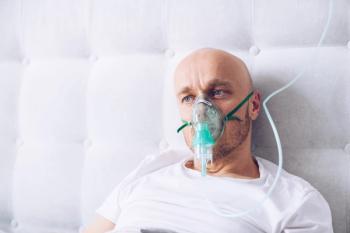
Depression, Other Mental Health Comorbidities, Common in People with OUD
A systematic review shows as many as one-third of people with opioid use disorder have concurrent depression, and one-third will have antisocial personality disorder over the course of their lifetimes.
More than one-third of people with opioid use disorder (OUD) also have depression, according to a new systematic review, and nearly 3 in 10 suffer from anxiety.
The study, which is likely the first systematic review and meta-analysis to quantify rates of specific mental disorders among people with OUD,
Previous research has shown that mental disorder comorbidities were common among people with OUD, and people with both OUD and mental disorders are known to have poorer long-term health outcomes compared to their peers. Yet, despite the status of OUD as a major public health issue, little was known about the prevalence of specific mental disorders among people with OUD.
From nearly 37,000 studies identified, a total of 345 studies involving 104,135 people with OUD were eventually included in the analysis.
The pooled data showed that an estimated 36% of people with OUD had concurrent depression, 29% had anxiety, and 21% had attention-deficit/hyperactivity disorder . Post-traumatic stress disorder (PTSD) was present in 18% of people with OUD.
Santo told Managed Healthcare Executive® that the association between mental disorders and OUD was not itself a surprise, but he said the degree of the prevalence was unexpectedly high.
“For example, people with OUD experienced depression, PTSD, personality disorders, and ADHD at more than ten times the rates of the general population,” he said. “Since mental disorders and OUD are strongly linked, we expected that most mental disorders would be higher among people with OUD. However, the magnitude in difference was surprising.”
Over the course of their entire lives, just over one-third of people with OUD experienced antisocial personality disorder (95% CI 29.1–38.0%), and just under one-fifth (18.2%) experienced borderline personality disorder.
Santo said he was also intrigued by variances in prevalence between males and females. Depression, anxiety, PTSD, and obsessive-compulsive disorder (OCD) were more prevalent in women with OUD compared to men. ADHD and antisocial personality disorder were more common in men. Santo said these findings ought to be helpful to medical professionals providing services to people with OUD.
“Incorporation of trauma-informed principles or development of gender-specific interventions can improve treatment for all people with OUD, and may be particularly important for women with OUD and comorbid mental disorders,” he said.
The report may also shed light on why it can be difficult to treat people with OUD. Though the study itself did not deal directly with treatment adherence, Santo said it is easy to see how the high prevalence of mental comorbidities compounds the problems faced by people with OUD.
“Comorbid mental disorders increase risk of treatment dropout, contact with the criminal justice system, and hospitalization,” he said, “so improved treatment of comorbid mental disorders among people with OUD may reduce likelihood of these adverse outcomes among people with OUD.”
Santo and colleagues said these data show the importance of providing people with OUD with access to mental health services and tailoring those services to holistically address both their addiction and their mental health disorders.
Newsletter
Get the latest industry news, event updates, and more from Managed healthcare Executive.























